How nutrition impacts early childhood development
More evidences, world over, are showing that good nutrition is the most solid foundation on which destinies of children are built.
Even the uneducated parents who used to differ on proven gains derivable from good nutrition such as exclusive breastfeeding in the first six months of life and subsequent feeding with good meals, otherwise regarded as balanced diet, are expectedly turning advocates of good nutrition for all children.
Good nutrition and early child development are like shell and snail. Though they are intertwined, the wellness of the latter depends on the former.
Real life stories such as the ones provided in this piece will at least help change the attitude of persons who do not yet believe that good nutrition for infants and children is arguably the best gift parents can offer their children.
“Oluwatomiwa has been beating everyone’s imagination in his house at Air Force Base Village, Nuwalege, Abuja. The 15-month-old boy is just very amazing in manners he has grown intellectually in few months.
The boy started crawling at six months, walked at eight months, and at one, he was already running around the sitting room and other rooms in the house. Oluwatomiwa could be seen jumping over the furniture. To his parents’ surprise, he has attempted many times to pick spoons from food and feed himself while they eat. He is very intelligent.
Some neighbours believe the parents aren’t sharp as he is, and wonder how the boy remains a genius at his age. The best thing to observe in the boy’s life is that he hardly falls sick. Even while teething few days ago, the mother, Oluwabukola, told this medium that she only gave him paracetamol for children, “and that was all.”
One of her neighbours, she said, has a 16-month-old boy, born a month before Oluwatomiwa; he is yet to walk. And, the boy would not crawl fast as expected of him, thus putting some fear in the minds of his parents.
Ideally, Oluwatomiwa has no reason to be dull since he was not born with bodily defects or adverse genetic traits. He enjoyed good nutrition provided by only breastfeeding without complementary meal for his first six months of life. “I think that is one of the best gifts I have given the boy, as I was counselled at the antenatal clinic,” the mother said. “He is my first child, and I will do same for his siblings when they arrive,” she boasted.
She however attributed some delays in expected development of her neighbour’s child to failure of the boy’s mother to breastfeed him exclusively. “We attended the same antenatal clinic. I knew from day one she would not do that because she had always kicked against it. And, she never did,” she said.
She went on: “Mothers just have to do it (breastfeed exclusively. I think there is no excuse. Even when my breast milk did not come few hours after I put to bed, I insisted no one should give my baby water. The baby kept sucking my nipple until the milk came out. If exclusively breast-fed, all children (except for those with deformities) can be like my boy.”
“And, I think one of the key things here is the support of the husband. My husband supported my decision, and no one, even my in-law and or my mother was allowed to feed my baby with anything other than the breast milk within his first six months of life.”
From home to crèche and other pre-primary school classes, experts believe every child breastfed exclusively and later made to have good nutrition would do well while learning, both at home and in school.
Nigeria Health Online was part of the media team that was invited to Kano state by the United Nations Children Fund, UNICEF, for a Media Dialogue on Early Child Development recently.
Kano Sara Wamo Municipal Primary School is one of the schools providing Early Child Care Centre (ECC) as stipulated by the Universal Basic Education Commission, UBEC, for all primary schools in the state. ECC pupils, according to law are between ages five and six.
One of the pupils in ECC at the Sara Wamo Municipal Primary School, Hauwa Mohammed, looks too smallish and frail for her age. She finds it difficult to cope with the pace and vigour her friends play at break time on play facilities at the children’s playground. Her mother also lamented her learning capacity is too low.
For few minutes, frail Hauwa would watch her mates swing around for a number of times before she could join them. The desire to do even better than her friends is almost visible on her face as she watches on, and at last would make some attempts at the games.
“She is not very strong like them,” head teacher of her school, Aminu Abdullahi told Nigeria Health Online. From her look, Hauwa is most probably not been well-fed from home, even as the pre-school feeding programme that could lift her nutrition status is never implemented by the state government.
Hauwa’s look visibly tells anyone around her that she is lacking some good nutrients that could make her grow and move at same pace with her peers.
A girl of over five years, Hauwa looks like three-year-old. While others gave their names loudly when being interviewed by journalists, Hauwa struggled to talk.
Her mother soon appeared in the school to take her home. “Why are you here madam?, one of the school teachers asked her in Hausa language. “Hauwa has not been feeling well. I came to check her because I managed to release her to go come to school this morning,” replied the mother.
From there, our correspondent interacted with her through an interpreter. The mother, Falilat, revealed her baby was given water and other local medications the very week she was born. “That was how I brought up my five children,” she said. She also confirmed the family eats foods that are deficient in protein and other needed diets for good health.”
Her biggest worry however is that Hauwa is not learning fast as she expects. “I want her to be smart, but, she is too slow,” she said.
Though the picture of poverty could be easily seen on many of pupils within the school, many of them still looked healthy, except that they are dirty, following much wind that raises dust, and often causes dust storm on the premises. Nigeria’s northern region is characterized by dust wind during dry season, because of its arid nature.
Experts believe no matter the economic conditions of families, parents and other caregivers could make good nutrition out of the common and cheap foods in their environments such as vegetables, fruits, guinea corn, maize, crayfish, milk, egg, beans, millet, groundnuts, soya beans among others. Available data even show that malnutrition is common in rich homes, because people in those homes eat fast foods and other meals that lack nutrients expected for good growth.
Education Specialist for UNICEF, Swachet Sankey, said during the media dialogue programme that early child period comes in four sections: from conception to birth; from birth to three years, especially the first 1000 days; three to five or six years, being the pre-school period; and six to eight years when the child transits to primary school.
“Development is an outcome and the continuous process of acquiring skills and abilities during age period. Forms of development include cognitive development, language development, physical development, social development and emotional development.
“Development results from interaction between the environment and the child. A stable environment is the one that is sensitive to children’s health and nutritional needs, with protection from threats, providing opportunities for early learning and interactions that are responsive emotionally, supportive and developmentally stimulating. The key aspect of this environment is nurturing care, she said.
She added that all young children from conception to transition to primary school achieve their developmental potentials. This is enabled by two factors. One, all children have equitable access to essential quality health, nutrition, protection and early learning services that address their developmental needs.”
According to her, every young child has the right to thrive. She said a child’s brain develops fastest in the first two to three years.
Quoting the 2015 Lancet, Swachet said about 250 million children under-five are at the risk of not reaching their full potential.
She said Nigeria is among the 10 top countries that contribute to the 250 million children, and that lack of early child education results in about 25 percent reduction in average adult earning potentials.
“Early childhood development pays off, paving way for better health and learning capacity, increases adult learning, reduces poverty and eliminates inequalities. The brain develops most rapidly in the first 1000 days of life where neurons form new connections at astounding rate of up to 1000 days,” Sankey noted.
Regarding earnings, she argued that early nutrition can raise adult wages by five to 50 percent. Children who escape stunting are 33 percent more likely to escape poverty, she said.
“Early learning is a key strategy to reduce inequities, promoting school readiness and learning. Research has shown that children who have pre-primary education are less likely not to proceed with education.
“Investment in early learning can improve education outcomes, promote equity, build a skilled workforce, yield high result and benefit society… The Sustainable Development Goals desire that by 2030, all girls and boys have access to quality childhood development, care and pre-primary education that will help them get set for primary school education.
She noted that UNICEF focuses on pre-primary education, capacity building, innovation, and advocacy, conducts in-service and pre-school teaching training, monitoring, mentoring, data and evidence generation as its contribution to early child development. “One of the challenges UNICEF has in Nigeria is lack of evidence/data on pre-school education,” she said.
Desk Officer, Early Childhood Education Programme at the Universal Basic Education Commission in Abuja, Mr Alesin Mayowa, spoke with the media team on Investing Early in Every Nigerian Child. Mayowa said Nigeria constitution prescribes education as a right, and that the country is a signatory to international conventions such as Education for All, MDGs and the SDGs.
UBE programme, he said is a response of government to fulfilling its role and commitment to international conventions.
“UBEC was initiated in 1999 by former President Olusegun Obasanjo. It was given legal framework in 2004 with the UBE Act 2004. Scope of UBE covers nine years of formal schooling. UBE provides free books instructional materials, classrooms, furniture and lunch for the children.
“It builds teachers capacity, provides infrastructures. National Policy on Education (6th Edition) recognizes ECCDE as 0 – 4 and pre-primary kindergarten as 0 – 5,” he said.
Mayowa said teacher-pupil ratio for crèche is 1:10, nursery 1:25, and pre-primary 1:25. New structure of education in the country is Nigeria is 1-6-3-3-4, and the first school year is compulsory pre-primary education.
Mayowa explained that government has policy documents guiding the development and implementation of ECCDE and pre-primary education. He said there is policy that government reform colleges of education to accommodate School of Early Childhood.
“As at 2014, 62,406 public primary schools were in Nigeria, but only 28,026 of them had ECCDE centres. Enrolment into school in 2012/2013 session into the nation’s public primary schools was 1,508,974 (males) and 1,458,356 (females),” Mayowa said. He faulted claims that Nigeria has 10 million out-of-school children.
At the time it was set up, Federal Government set aside two percent of its Consolidated Revenue Fund for implementation of the programme. The funding was segregated to matching grant by states. In 2017 budget, UBEC got N95 billion from the Consolidated Revenue Fund.
Mayowa however lamented that Osun State Governor, Rauf Aregbesola kicked against the ECCDE programme. According to him, the governor said children of age three to five should remain under the custody of their parents and guardians. He pledged that government is poised to achieving target two of the SDG four.
On the reason state like Osun refused to accept the programme, he said Federal Government could not force any state to accept its education policies because education is on the Concurrent List of the nation’s constitution.
A senior official of the Federal Ministry of Health, Dr Omokere Oluseyi, who spoke on Nigerian Child and ECD, said each year, more than 267,000 babies die in their first month of life, accounting for more than a third of all under-five deaths.
He explained that Nigeria records about 756,000 under-five deaths every year (IGME 2012) one in every 15 children.
According to him, approximately 8.8 million children die in the world annually out of which Nigeria contributes one million under-five deaths and the greatest burden is with newborn deaths.
Oluseyi said Nigeria loses about 2,300 under-five years old and 145 woman of childbearing age daily. This, he said, makes the country the second largest contributor to global under-under mortality.
He listed causes of under-five deaths to include pneumonia, malaria, HIV/AIDS, asphyxia, sepsis, congenital, malformation, measles, diarrhea among others.
He said the health ministry focuses on reduction of perinatal and neonatal morbidity, mortality and ensure optimal health for all newborns.
“Government interventions over the years include development of National Strategic Health Development Plan (2017 – 2022); Reproductive, Maternal, Newborn Child and Adolescent Health Strategy and Nutrition; National Strategy on Scale-up of four percent Chlorhexidine (2016); Nigeria Every Newborn Action Plan (2016); National strategy on MNH Quality of Care; and Domestication of UN Commission on Life Saving Commodities. That is, Nigeria’s 13 (+2) live saving commodities,” he said.

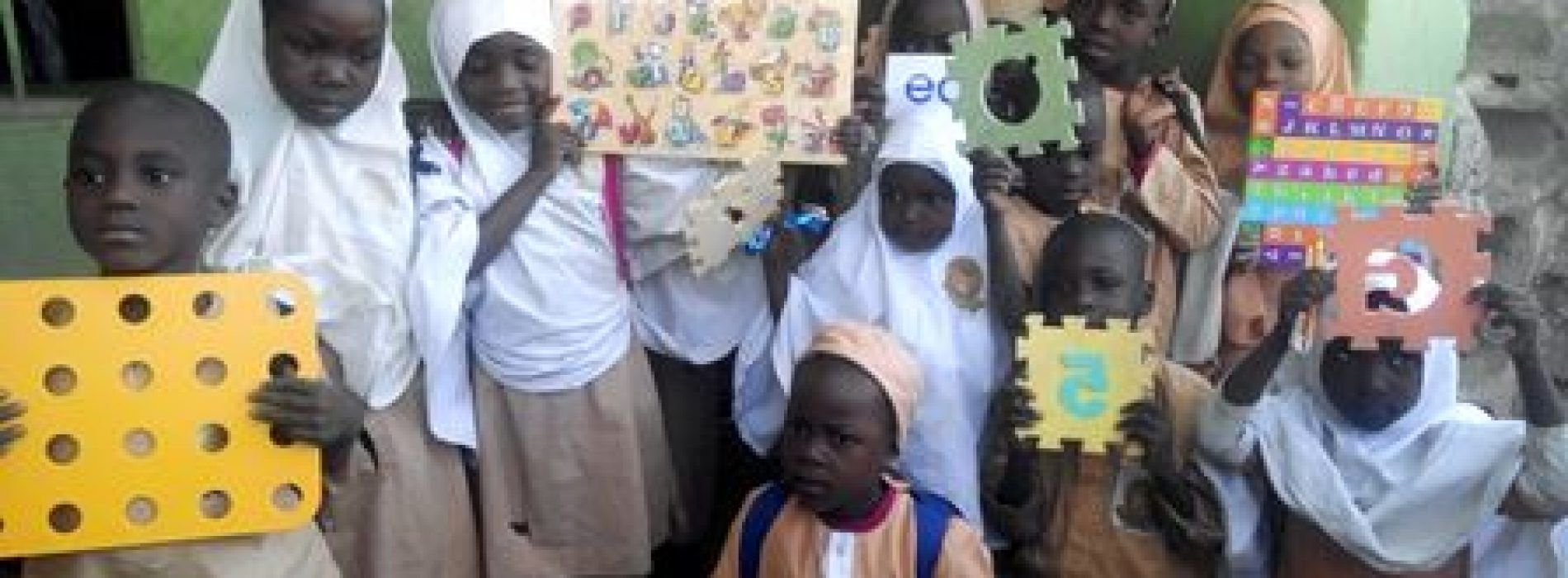
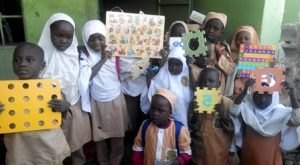

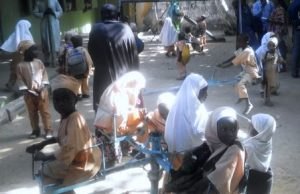
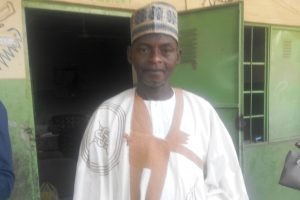
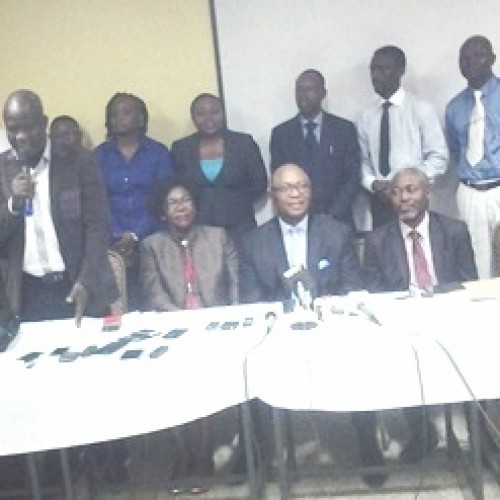
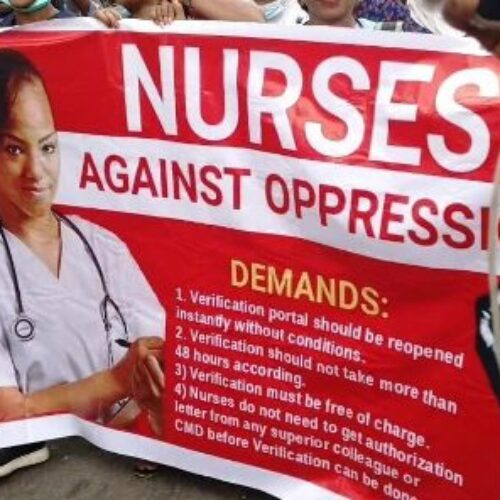


0 Comments
No Comments Yet!
You can be first to comment this post!